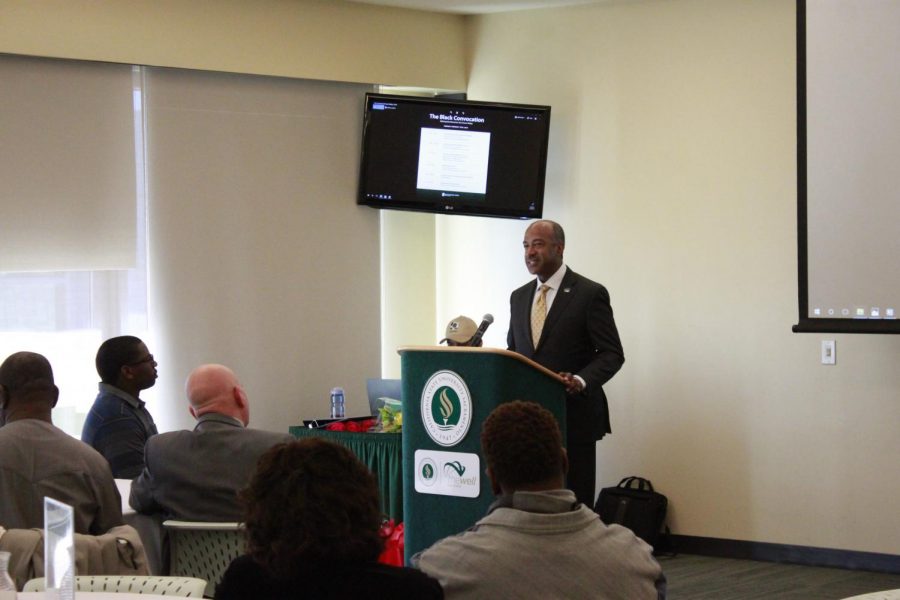Black Convocation focuses on benefits of diversity to education, society
Chancellor of UC Davis, Dr. Gary S. May, giving a key note speech at the 3rd Annual Black Convocation, Monday morning in the Terrace Suite in the Well. This was May’s first speech on Sac State’s campus.
February 19, 2018
Sacramento State, in partnership with the Martin Luther King Jr. Center, hosted the Third Annual Black Convocation in the Terrace Suite at The WELL on Monday.
This year’s seminar, titled “Reliving the Moments: Our Power Today,” began with a performance from Sac State student and rapper Consci8us. Consci8us performed a song called ‘Black Lives Shatter,’ which touched on problems faced by members of the black community.
“Today is important because it gives us another starting point for us to think about leadership and think about the steps we need to start taking to improve our communities,” Consci8us said.
Motivational speaker and former Sac State and NFL wide receiver Otis Amey spoke before a keynote speech by UC Davis Chancellor Gary May. Amey focused his speech on how to achieve success in the face of adversity.
Amey chose to highlight the career of Sac State alumnus Ryan Coogler, who directed the newly-released film “Black Panther.” He said that Coogler’s career shows that major success is possible for Sac State students.
“My dreams and goals are possible; whether it’s sports, music, filmmaking, whatever it is, I can accomplish it,” Amey said.
May followed Amey, giving his first speech on the Sac State campus since he became the UC Davis chancellor. May spoke about his path to becoming the chancellor, heavily focusing on diversity and its benefits to society.
“I long for the day when diversity and inclusion become so much a part of who we are that I don’t have to talk about them,” May said.
Janay Ezekwe, a Sac State student in attendance, said that the convocation was important because it got students and faculty together to take the first steps toward actions that can improve the community.
“I think that’s how our nation is going to progress is when more of us take initiative,” Ezekwe said.
Marcellene Watson-Derbigny, the associate vice president for student retention and academic success, said that the convocation was important because it brought students, faculty and staff together in celebration of Black History Month.
“We plan this convocation annually as a way to bring the faculty, staff, and students together to show our collective action as one unit,” Watson-Derbigny said. “That we are united on behalf of the student.”
When asked what the biggest take away from today’s convocation was, Amey kept it simple: “It’s possible.”

































































































































